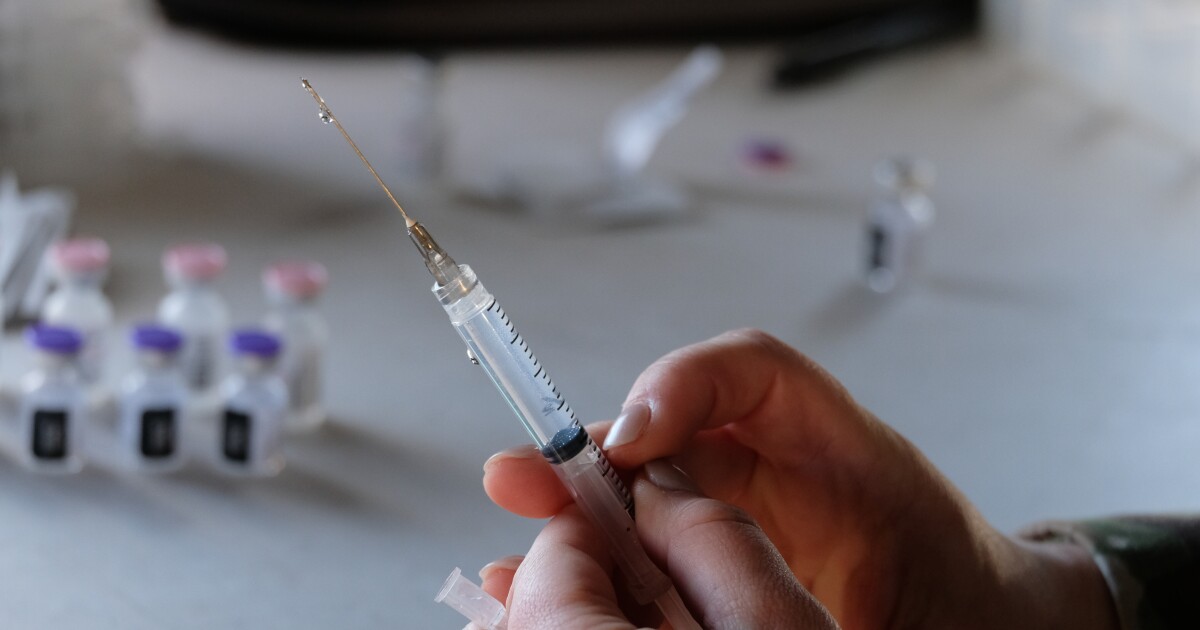New Hampshire hospitals and doctors’ offices are seeing a post-holiday increase in patients with respiratory illnesses, including the flu, COVID-19 and RSV.
It is common for flu and COVID cases to increase this time of year. But state epidemiologist Dr. Benjamin Chan said the increase in RSV cases is coming later than usual in the season, which may impact the health care system as a whole.
“We are seeing these three respiratory viruses – influenza, COVID-19 and RSV – increasing simultaneously,” he said.
Chan said basic precautions — like washing hands and staying home when sick — are especially important this time of year, along with recommended vaccinations. He noted that flu cases often peak in January or February and COVID cases could also continue to rise.
“We continue to recommend vaccination as the first and best line of defense,” he said.
The U.S. Centers for Disease Control and Prevention recommends that almost everyone ages 6 months and older get the flu and COVID vaccines each year. The agency says the annual shots are important because they boost immunity — which wanes over time after a vaccination or infection — and target more current virus strains.
As of mid-December, about 30% of New Hampshire adults had received an updated COVID vaccine, while 50% had received their annual flu shot, according to the CDC.
RSV vaccines are also available for infants and the elderly, who tend to be most at risk.
Dr. Lukas Kolm, medical director of emergency services at Wentworth-Douglass Hospital in Dover, offered a few other suggestions for those looking to stay healthy this time of year: Replace handshakes with punches. Use your knuckle to press the elevator buttons. Wash your face and hands before going to bed.
“When you have holiday gatherings, you can anticipate spikes,” he said.
It may also be a good idea to mask up in busy areas, especially when people around you are visibly ill, said Dr. Rebecca Wang, an infectious disease physician at Dartmouth-Hitchcock Medical Center in Lebanon.
“All the precautions we’ve been talking about for so many years can help,” she said.
For people who are older, have weakened immune systems, or are at higher risk, she said it’s a good idea to ask your doctor about antiviral medications if you test positive for the flu or COVID. These medications can reduce the risk of serious illness.

